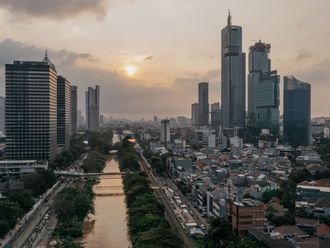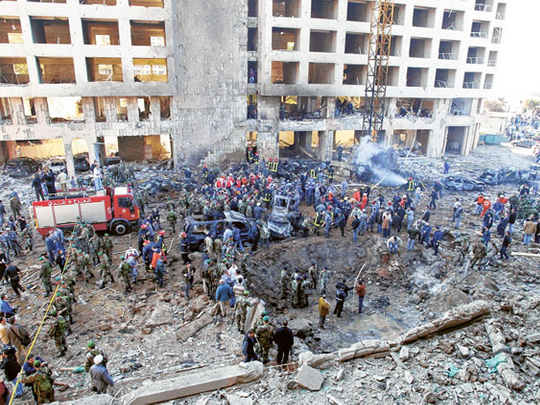
Dubai: Even one tonne of TNT, which had been set to blow up Rafik Hariri's motorcade on February 14, was not enough to wipe out the legacy of the man and his ability to influence the political developments in Lebanon and in the region for years to come.
The criminals, who perpetrated the assassination failed to imagine the impact of this assassination compared to the other assassinations in the past 30 years including one of a prime minister and two presidents of the nation.
Political assassinations, however, had become the norm in a country which once prided itself as being an oasis of democracy among dictatorships and totalitarian Arab regimes.
In an immediate reaction to the crime, part of the population accused the Syrians, who were in control of the security. Syria kept its army in Lebanon after it was invited to end the civil war some 30 years ago.
Although Hariri himself was not very keen to see the Syrians out of the country, a group of Lebanese felt that the assassination would have be the right moment to force the Syrians out of the country.
For the family and supporters of Hariri, the man was killed because he failed to express his protest against Syrian pressure, to the extension of Emile Lahoud as president of the country. They explained that Hariri bowed to Syrian pressure and passed the extension of Lahoud and resigned, a reason that is seen by some as enough to accuse Syria's involvement in the crime.
Syria has categorically denied any involvement in the assassination and decided to pull out its troops in a move that Damascus felt would help ease tensions with the neighbour.
The move, however, did not help much and for the first time, the international community had to form a court to investigate and try the suspects.
The UN reasoned its unprecedented move as a bid to end unchecked political assassinations in the country. Right from an early stage there had been a tremendous public support for the investigation. Most of the population, even those who disagreed with him politically, admitted that Hariri had the best interests of the Lebanese people in mind, regardless of their sect or political leanings.
He used part of the fortune he made while working in Saudi Arabia to revamp the educational sector and sent more than 30,000 youngsters to universities in Lebanon and around the world to pursue gainful education that would help in the rebuilding of the country.
His philanthropic establishment had never differentiated between sects and judged students according to their performance and ability to do better for Lebanon. Nuhad Mashnouk, political analyst believes that no civil war will happen in Lebanon even if the court indicted Hezbollah members in the assassination.
"Sa'ad Hariri, the son of the assassinated leader will not allow the nation to slip into another civil war of which Rafik Hariri has invested life and wealth to stop," Mashnouk told Gulf News, last year, adding that, solving the mystery about the killing was vital.
"After which, the Hariri family, the Future Movement and its allies will be able to discuss any other issue," he said.
Assassination: Profiles of accused
Following are profiles of those mentioned in the indictment. According to the indictment, Mustafa Badr Al Deen masterminded and supervised the plot to assassinate the Lebanese statesman while, Ayyash is alleged to have headed the cell that carried out the assassination.
Al Deen: the brother in-law of assassinated Hezbollah commander Emad Mughniyah. Al Deen replaced Mugniyah as Hezbollah's chief operations officer after he was killed in a mysterious explosion in Syria on February 12, 2008. The 50-year old is a member of the Hezbollah Shura Council. He was arrested in Kuwait in 1990, broke out of prison and escaped to the Iranian Embassy in Kuwait, and Iran's Revolutionary Guards escorted him to Lebanon. Al Deen, also known as Elias Saab was the trainer of Mugniyah in "Force 17" in sabotage and bombs construction.
Salim Ayyash Salim Ayyash, 48, is accused of leading the cell which executed the assassination of Hariri. He holds a US passport and is a volunteer with the Lebanon's Civil Defence.
Asad Sabra" No information is available at this time.
Hassan Ainessi: No information is available at this time.


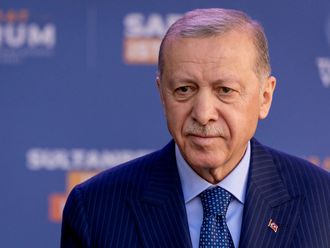

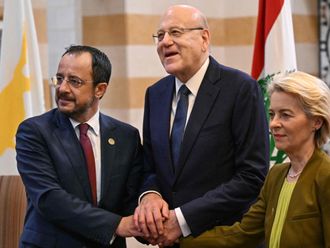
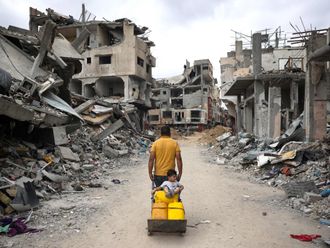




_resources1_16a3106a819_small.jpg)
